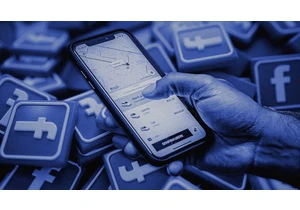Described as the worst U.S. security breach in a generation, the leak is an unprecedented failure for the White House. For several days, a journalist from The Atlantic had unrestricted access to a private Signal group chat involving the highest levels of government—discussing, in real time, an imminent U.S. military strike on Houthi rebels in Yemen. And no one in the administration had a clue.
Investigations are already underway to determine how such a blunder could happen. But the core issue requires no deep forensic analysis: the failure was human.
According to reports, The Atlantic’s Jeffrey Goldberg was mistakenly added to a Signal chat that included the president’s national security adviser and the secretary of defense—apparently because National Security Adviser Michael Waltz misidentified Goldberg (whose display name was simply “J.G.”) as a government official.
“It’s a pretty egregious failing,” says Robert Pritchard, a former deputy head of the U.K.’s Cyber Security Operations Center. While apps like Signal or WhatsApp offer strong encryption and are widely used for coordination, Pritchard notes that such tools are not appropriate for sensitive or classified communication—not because the apps themselves are insecure, but because the devices and, crucially, the users are.
Or, to put it more bluntly: the problem is the people using them.
“Signal is no substitute for good operational security,” says Alan Woodward, a cybersecurity professor at the University of Surrey. “Invite someone to your chat group, and of course they can read everything.”
The potential fallout is enormous. “It may sound extreme, but this is the sort of failure that could get people killed,” warns Woodward. “It’s fortunate the journalist chose not to share all the information and waited until after the relevant events unfolded.”
Beyond the immediate security risks, the episode reveals a deeper institutional problem: the lack of transparency and proper recordkeeping when government business is conducted on third-party messaging apps with disappearing messages. Even more troubling to some experts is the likelihood of it happening again. “Human mistakes happen—and they will continue to happen,” says Lukasz Olejnik, an independent cybersecurity consultant and visiting senior research fellow at King’s College London. “And policies will be violated.”
What comes next is unclear. Defense Secretary Pete Hegseth has publicly claimed no war or attack plans were shared in the chat—something The Atlantic‘s Goldberg disputes, calling the statement “a lie.”
“I would imagine there is a big clean-up operation ongoing right now,” says Pritchard, the former Cyber Security Operations Center deputy. “All those devices need to be wiped, including any secondary devices that have the same Signal account accessible on them, and there need to be investigations into what else has gone on on Signal.”
But cleanup may be to little, too late. After all, the leaked chats are a goldmine for adversaries. “Among the damage is a leak of fragments of information potentially allowing people to compose a psychological profile of U.S. leaders,” says King’s College London’s Olejnik—from their emoji use to the vice president’s candid feelings about Donald Trump.
In the end, this wasn’t a failure of technology—it was a failure of judgment. And it may take more than a wiped device to repair the damage.
Zaloguj się, aby dodać komentarz
Inne posty w tej grupie

When it comes to sharing Instagram Reels with friends, the process of three taps to get a Reel from A to B can feel surprisingly tedious. Now, Instagram has addressed that issue with its latest fe

New Jersey filed a lawsuit against Discord on Thursday, alleging that the social platform recklessly exposed children to “harassment, abuse, and sexual exploitation by predators who lurk on

Google has acted illegally to maintain a dominant position in online advertising, a federal judge ruled on Thursday. The tech giant’s “exclusionary conduct substantially harmed Google’s publisher

Welcome to AI Decoded, Fast Company’s weekly newsletter that breaks down the most important news in the world of AI. You can sign up to receive this newsletter ever


Elon Musk’s SpaceX and two partners have emerged as frontrunners to win a crucial part of President Donald Trump’s “Golde

A new watchdog report uncovers Facebook groups quietly fueling a black market fo
